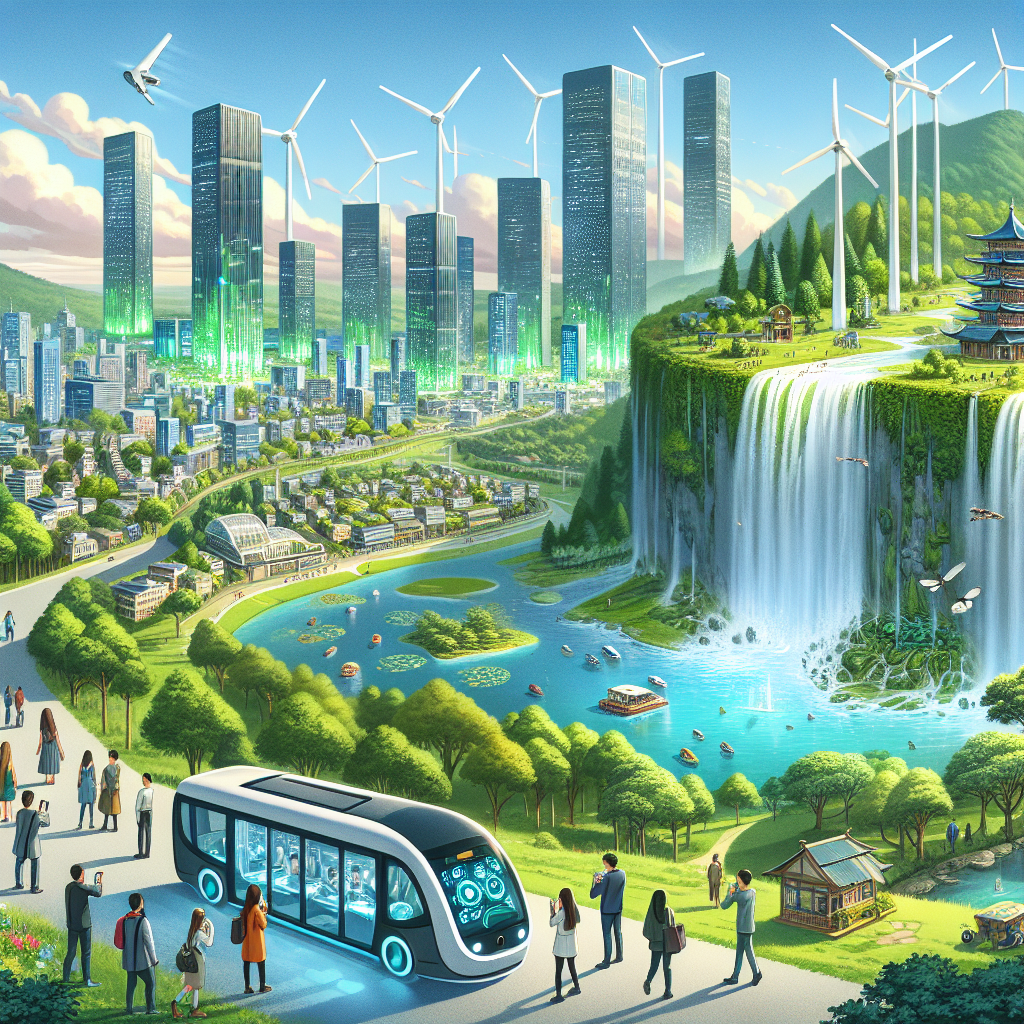As the world becomes increasingly interconnected and accessible, the tourism industry continues to grow at a rapid pace. With this growth comes a responsibility to ensure that tourism is sustainable and does not harm the environment or local communities. Artificial Intelligence (AI) is playing an increasingly important role in helping to balance the growth of tourism with conservation efforts.
AI technology has the potential to revolutionize the way in which we approach sustainable tourism. By harnessing the power of AI, we can better understand the impact of tourism on the environment, predict future trends, and develop strategies to mitigate any negative effects. AI can also help to streamline the tourism experience, making it more efficient and enjoyable for both tourists and local communities.
One way in which AI is being used to promote sustainable tourism is through the analysis of data. By collecting and analyzing data on tourist behavior, environmental impact, and local resources, AI systems can provide valuable insights into how tourism is affecting a particular destination. This information can then be used to develop targeted strategies to minimize negative impacts and maximize positive outcomes.
For example, AI algorithms can analyze social media posts and online reviews to identify popular tourist attractions and trends. This information can be used to develop marketing campaigns that promote lesser-known destinations, spreading tourist traffic more evenly and reducing overcrowding at popular sites. AI can also be used to monitor and manage visitor numbers, ensuring that delicate ecosystems are not overwhelmed by tourism.
Another way in which AI is being used to promote sustainable tourism is through the development of smart infrastructure. By integrating AI technology into transportation systems, accommodation facilities, and tourist attractions, we can create a more efficient and sustainable tourism experience. For example, AI-powered traffic management systems can help to reduce congestion and emissions in popular tourist destinations, while smart energy systems can minimize the environmental impact of hotels and resorts.
In addition to promoting sustainable tourism, AI can also play a crucial role in conservation efforts. By using AI-powered drones and cameras, researchers can monitor wildlife populations, track poaching activity, and protect endangered species. AI algorithms can also analyze satellite imagery to identify deforestation and illegal logging, helping to preserve fragile ecosystems and biodiversity.
However, while AI has the potential to revolutionize sustainable tourism, it is not without its challenges. One of the main concerns surrounding AI is the potential for job displacement. As AI systems become more advanced, they may replace human workers in the tourism industry, leading to unemployment and social inequality. It is important for policymakers to develop strategies to ensure that the benefits of AI are shared equitably among all stakeholders.
Another challenge is the ethical implications of AI technology. As AI becomes more integrated into tourism operations, there is a risk that personal data may be misused or exploited. It is crucial for companies to prioritize data privacy and security, and for governments to regulate the use of AI in the tourism industry.
In conclusion, AI has the potential to revolutionize sustainable tourism by providing valuable insights, streamlining operations, and promoting conservation efforts. By harnessing the power of AI, we can create a more sustainable and responsible tourism industry that benefits both visitors and local communities. However, it is essential to address the challenges and ethical considerations associated with AI technology to ensure that its benefits are realized in a fair and equitable manner.
FAQs:
1. How can AI help to promote sustainable tourism?
AI can help promote sustainable tourism by analyzing data to understand the impact of tourism on the environment, developing targeted strategies to minimize negative effects, and streamlining the tourism experience for both tourists and local communities.
2. What are some examples of AI technology being used in sustainable tourism?
Examples of AI technology being used in sustainable tourism include analyzing social media posts to identify popular tourist attractions, developing smart infrastructure to create a more efficient tourism experience, and monitoring wildlife populations to protect endangered species.
3. What are the challenges associated with AI in sustainable tourism?
Challenges associated with AI in sustainable tourism include job displacement, ethical concerns surrounding data privacy and security, and the need for regulation to ensure that AI benefits are shared equitably among all stakeholders.
4. How can policymakers address the challenges of AI in sustainable tourism?
Policymakers can address the challenges of AI in sustainable tourism by developing strategies to ensure that the benefits of AI are shared equitably among all stakeholders, prioritizing data privacy and security, and regulating the use of AI technology in the tourism industry.

